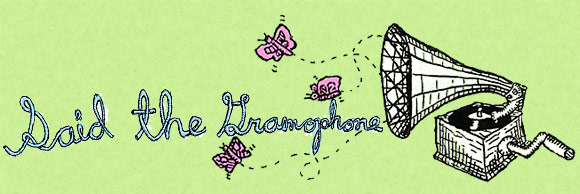The Jimi Hendrix Experience - "May This Be Love"
In the summer of 1960, Bosley Crowther's feelings about Alfred Hitchcock's Psycho were tepid. In a review in the New York Times, Crowther derided the film's pop psychology and pulp sensibility and assessed the acting as "fair". He did not hate the movie, but he didn't like it either. By December, he had made an about-face, arguing in the same paper that Hitchcock's masterpiece was among the ten best films of the year. So what happened?
It's not, I think, that he was drawn in by the gravity of a growing critical consensus that the film was a milestone. Crowther was not usually afraid to stand on his own. A few years later, he would be replaced as the Times' film critic, some say because of his unrelenting outspoken hatred for Bonnie and Clyde, another groundbreaking American movie that would eventually unite critics in celebration.
More likely, Crowther's Psycho schizophrenia came about because he rewatched the film and reconsidered his opinion; or perhaps more accurately, a different Crowther - one in a better mood or one inured to the potential shock of the new filmic possibilities on display - watched it for the first time and liked it right away.
When I watched Psycho for the second time, I couldn't believe my eyes. I had remembered the plot and the aesthetic well, but the overwhelming paranoia, the bleeding of tenderness into violence, the timeless brilliance of Anthony Perkins' performance - these were all totally new to me. Whether this was only a matter of mood or of a more profound shift, I can't say. Just as I can't say why, after I first watched Sofia Coppola's Lost In Translation, I emerged from the theatre exhilarated and proselytizing, whereas when I saw it again I thought it merely quite good.
Even as a ten-year-old classic rock aficionado, I was not an admirer of "May This Be Love". It seemed to me meandering and piecemeal (though I might not have used those words then), and continued to seem so until last week when I heard it in Cameron Crowe's Singles. While the film was much worse than I remembered, the song - wildly pretty, incoherent with romance - knocked me out.
Had I been forced to review "May This Be Love" upon its release, as Crowther was forced to review Psycho in the summer of 1960, I would likely have failed, as Crowther did, to fulfill a key part of my task: to guide readers to the pleasure in my subject. (And I don't just mean because I wasn't yet born.) Until last week, I couldn't hear that whenever Hendrix sings the word "waterfall" his band paints a waterfall with drums and bass. And I could not possibly have captured, because I could not perceive, the perfection of the final minute's guitar solo, the song's most perspicuous waterfall. But lucky for me, Said the Gramophone does not demand timeliness. I'm just now getting to Hitchcock and Hendrix; maybe next month I will write about Griffiths and Bach and Euripides. As for the new Bjork, give me twenty years. I'll get back to you.
[Buy]
That was lovely. Thank you.
Posted by Rachel at October 27, 2011 5:03 AMLoving the parallels.
Posted by Sean at October 27, 2011 3:43 PMI know this feeling. I had it when I "heard" Born to Run finally after 30 or so years of (my) existence. Sometimes you are ahead of the curve and sometimes you play catch up.
Posted by BMR at October 27, 2011 3:48 PM



